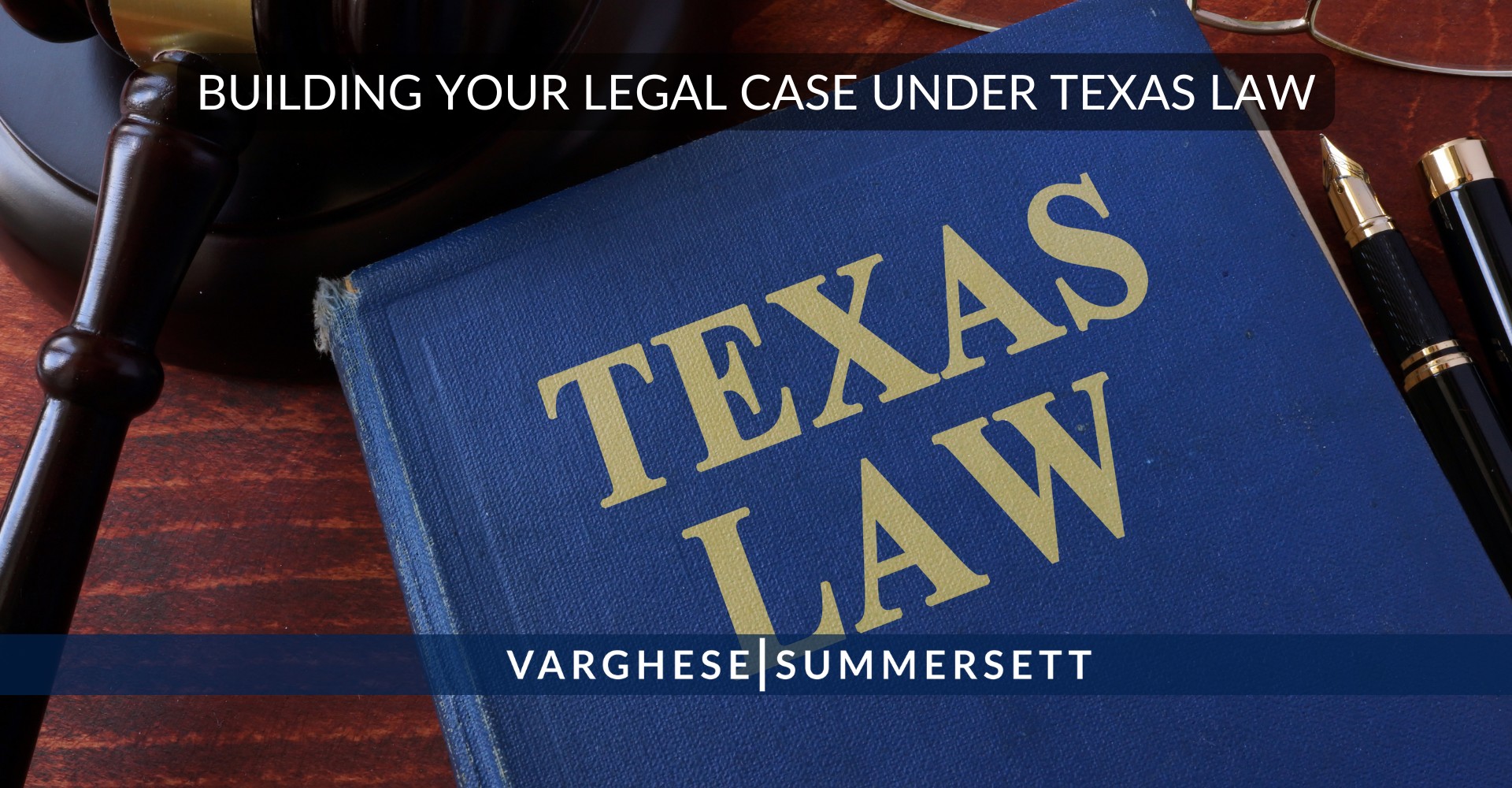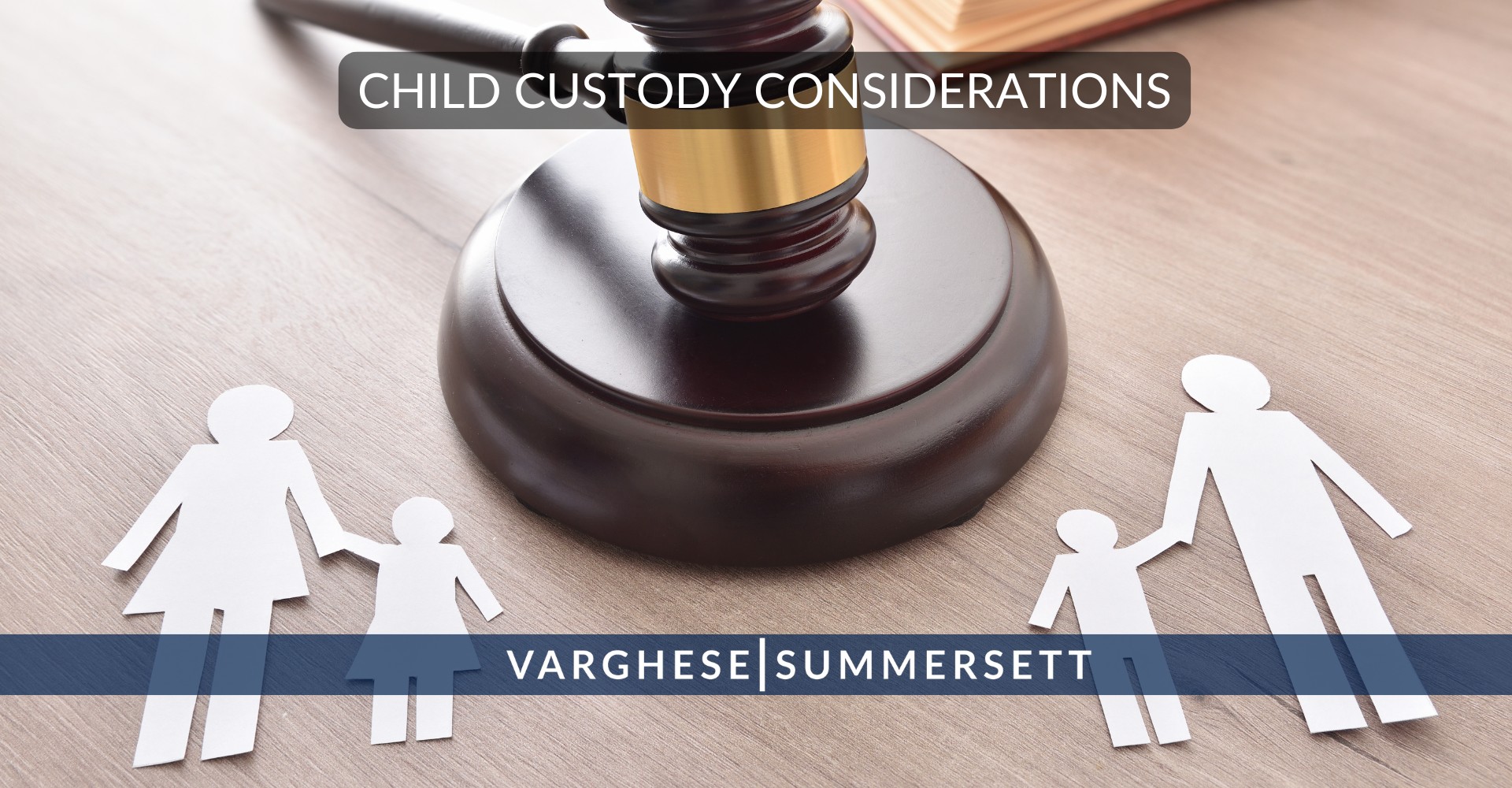 Cheating Apps: The Complete Guide to Digital Infidelity and Texas Law
Cheating Apps: The Complete Guide to Digital Infidelity and Texas Law
The moment your spouse becomes secretive with their phone—shielding the screen or stepping out to take calls—your instincts may scream that something’s wrong. In today’s tech-driven world, those gut-wrenching suspicions often stem from more than paranoia. Affairs have gone digital, and cheating apps are making it easier than ever to hide infidelity in plain sight. If you’re noticing subtle changes in your partner’s behavior, there’s a chance they’re using apps specifically designed to facilitate—and conceal—affairs.
This new era of digital infidelity has profound implications not just for relationships, but for the legal process as well. While Texas is a no-fault divorce state, evidence of adultery can influence everything from property division to custody disputes.
Under Texas Family Code Section 7.001, courts divide community property in a “just and right” manner—which doesn’t always mean a 50/50 split. Adultery, along with other fault-based grounds, can justify a disproportionate division of assets.
Texas Family Code Section 6.003 makes it clear: adultery is valid grounds for a fault-based divorce. But uncovering and proving digital infidelity means understanding how cheaters use modern technology—and knowing how to collect that evidence legally and effectively.
In this article, we’ll uncover the most commonly used cheating apps, explain how to identify digital infidelity, and guide you through the legal steps available under Texas law. From recognizing subtle behavioral changes to legally gathering digital evidence, this comprehensive guide is designed to empower you with the knowledge to protect yourself, your family, and your future.

The Hidden World of Digital Infidelity
Gone are the days when affairs required secret meetings in motel rooms or whispered phone calls. Today’s infidelity often exists entirely in the digital realm, hidden behind innocent-looking apps that your spouse checks while sitting right next to you on the couch.
What makes cheating apps particularly insidious is how these applications are designed from the ground up to avoid detection. Developers invest millions to create apps that resemble everyday utilities while concealing sophisticated communication systems. Some masquerade as calculators or news readers. Others leverage legitimate privacy features to facilitate secret relationships. The result is a technological arms race where suspicious spouses struggle to keep pace with ever-evolving concealment methods.

The 15 Most Dangerous Cheating Apps: Understanding the Threat
In today’s digital world, infidelity has taken on a new, more secretive form—thanks to a growing number of cheating apps that are designed to hide communication and conceal digital footprints. These apps can look like harmless tools on the surface but often allow users to send disappearing messages, hide contacts, and even clone phone activity. From vault apps that store hidden photos to encrypted messengers with stealth modes, the possibilities for secret affairs are disturbingly easy.
Understanding these apps is crucial not just for protecting relationships, but also for safeguarding emotional and digital security. Whether you’re concerned about a spouse’s behavior or want to protect your family from deception, knowing what these apps are and how they work is the first step toward taking back control. Here’s a look at 15 of the most dangerous cheating apps.

1. NewsTalk
Imagine your spouse constantly checking what appears to be a news app, scrolling through headlines about politics and sports. Nothing suspicious about staying informed, right? Wrong. NewsTalk represents the pinnacle of deceptive technology, creating a perfect facade that would fool the most tech-savvy individuals.
This application displays real news articles from legitimate sources, complete with breaking news notifications that appear entirely authentic. Your spouse could show you the app, scroll through articles, and even read you headlines without revealing its true purpose. But hidden beneath this convincing disguise lies a comprehensive cheating platform.
The secret interface requires a specific combination of actions to access—perhaps long-pressing the refresh button while entering a numerical code. Once unlocked, users gain access to encrypted messaging, voice and video calls, and secure file sharing. Most devastatingly, NewsTalk can delete all evidence simultaneously from both the sender’s and receiver’s devices, leaving no trace of conversations.
The sophistication extends to its notification system. When a secret message arrives, your spouse’s phone displays what appears to be a CNN or Fox News alert. They can check these “news updates” right in front of you, maintaining their deception even in your presence. If your spouse has suddenly become obsessed with checking the news multiple times per hour, especially during previously phone-free times like dinner or bedtime, NewsTalk might be the reason.

2. Snapchat
With over 750 million users worldwide, Snapchat has normalized the concept of disappearing messages, making it a favorite among cheaters who understand that evidence is their enemy. While teenagers might use it for silly face filters and fun, married adults exploit its message deletion features for far more destructive purposes.
The app’s entire architecture supports secretive behavior. Messages vanish after viewing, stories disappear after 24 hours, and the platform alerts users if someone attempts to screenshot their content. For someone conducting an affair, these features provide multiple layers of protection against discovery.
But Snapchat’s danger extends beyond disappearing messages. The Snap Map feature allows users to share their real-time location with selected individuals while hiding it from others. A cheating spouse can coordinate meetings with their affair partner while you believe they’re at work. The app’s “Quick Add” feature might even suggest potential partners for affairs based on mutual connections or location proximity.
Watch for behavioral changes around Snapchat usage. Does your spouse angle their phone away when opening yellow notifications? Do they seem anxious when you’re near while using the app? A high “snap score” (visible on their profile) indicates frequent usage that might not align with their claims of rarely using the app. Most tellingly, if they maintain active Snapchat streaks (indicated by fire emojis next to contacts), they’re exchanging daily messages with specific individuals—worth investigating who these streak partners are.

3. Signal
When Edward Snowden recommends an app for privacy, you know it’s serious. Signal employs the same encryption protocols used by military and intelligence agencies, making it virtually impossible to intercept or decode messages. With over 40 million users, it’s gained mainstream acceptance, providing perfect cover for illicit communications.
What makes Signal particularly attractive to cheaters isn’t just its encryption—it’s the comprehensive privacy features that go beyond simple message protection. The app offers “disappearing messages” with timers ranging from 30 seconds to a week. Once activated, messages vanish without a trace, leaving no evidence even if you gain access to the device.
The app’s “sealed sender” feature hides metadata about who’s communicating with whom, while screen security prevents screenshots within the app. Registration requires only a phone number—no real names, email addresses, or identifying information needed. This anonymity, combined with the app’s nonprofit status and privacy-focused reputation, provides cheaters with both practical tools and psychological justification for its use.
If your previously tech-indifferent spouse suddenly becomes passionate about “privacy rights” and installs Signal, pay attention. Look for behavioral changes like taking calls in private when Signal notifications appear, or becoming defensive when asked about the app. While Signal has legitimate uses, its presence combined with secretive behavior patterns creates reasonable suspicion.

4. Telegram
Telegram’s massive user base of 700 million provides anonymity in numbers, but it’s the “Secret Chat” feature that makes it a cheater’s paradise. Unlike regular Telegram chats that sync across devices, “Secret Chat” exists only on the specific devices where they were created, leaving no cloud backup or trace on other devices.
The platform goes beyond basic encryption with features designed for maximum secrecy. Users can set self-destruct timers for messages, share files up to 2GB (perfect for intimate photos and videos), and communicate using usernames without revealing phone numbers. The app even includes a “kill switch” that deletes all Secret Chats if the user doesn’t log in for a specified period.
Telegram’s bot ecosystem adds another layer of functionality for cheaters. Bots can provide fake GPS locations, generate alibis, or even automatically delete messages based on keywords. Some relationship-specific bots help users manage multiple affairs simultaneously, keeping track of different cover stories and important dates.
Detection requires understanding Telegram’s dual nature. Check if your spouse has Secret Chats enabled—these appear separately from regular chats with a lock icon. Notice if they’re protective when Telegram notifications appear, or if they claim to use it for work but can’t explain specific work-related uses. Data usage patterns can also reveal heavy Telegram use that doesn’t align with visible chat histories.

5. Calculator Pro+ and Other Disguised Vault Apps
The genius of Calculator Pro+ lies not in its hidden features, but in its perfect mimicry of a standard calculator. Users can perform actual calculations, use scientific functions, and even demonstrate the app’s “calculator” features to suspicious spouses. This functional camouflage represents a premeditated approach to deception that goes beyond spontaneous bad decisions.
Accessing the hidden features typically requires entering a specific numerical sequence—perhaps a fake PIN or mathematical equation. Once unlocked, users find a comprehensive suite for managing secret relationships: encrypted photo galleries, private messaging systems, hidden contact lists, and secure document storage. Some versions even include panic features that instantly revert to calculator mode or delete all content if someone gets too close to discovering the secret.
The psychological impact of discovering such an app extends beyond the evidence it might contain. The deliberate installation of a disguised vault app demonstrates planning and intent that can be more hurtful than the affair itself. It shows your spouse didn’t just fall into temptation—they actively prepared the technological infrastructure for deception.
Detection requires systematic thinking. No one needs multiple calculator apps, so check for duplicates. Test suspicious calculators by entering random long number sequences or mathematical operations to see if they trigger hidden interfaces. Check app permissions in your phone’s settings—real calculators don’t need access to contacts, cameras, or storage. Most revealing is data usage; a calculator consuming significant mobile data is hiding something.

6. WhatsApp
With 2 billion users globally, WhatsApp has become so ubiquitous that its presence raises no suspicions. This mainstream acceptance makes it perfect for cheaters who can conduct affairs while appearing to engage in normal communication. The app’s end-to-end encryption, powered by the same protocol as Signal, ensures that even WhatsApp itself can’t read messages.
The danger lies in WhatsApp’s legitimate appearance combined with powerful privacy features. The “disappearing messages” function allows users to set timers for automatic deletion. Archive features hide entire conversations from the main chat list. WhatsApp Web enables secret access from computers, allowing affairs to continue during work hours without touching the phone.
Most insidiously, WhatsApp’s backup settings can be configured to exclude specific chats, ensuring that even if you access cloud backups, evidence remains hidden. The status feature, similar to Instagram stories, allows sharing of photos and updates with selected contacts while excluding others—perfect for maintaining intimacy with an affair partner while keeping spouses in the dark.
Watch for protective behavior around WhatsApp usage, archived chats with innocuous names that hide real content, or notifications from contacts you don’t recognize. If your spouse claims WhatsApp is just for family group chats but guards their phone when notifications arrive, deeper investigation is warranted. Check their “Last Seen” settings—if they’ve disabled it or set it to “Nobody,” they might be hiding active usage patterns.

7. Kik
Kik represents a different threat vector: complete anonymity. Unlike apps tied to phone numbers, Kik requires only a username, allowing users to create entirely separate identities with no connection to their real lives. This anonymity attracts those seeking affairs with strangers or maintaining relationships their social circles would disapprove of.
The app’s automatic message deletion when users log out provides built-in evidence destruction. There’s no message recovery, no cloud backup, and no way to retrieve conversations once they’re gone. This scorched-earth approach to data makes Kik particularly attractive to cheaters who understand that evidence is their greatest vulnerability.
Kik’s group chat features create communities of like-minded individuals, including those specifically focused on affairs and secret relationships. These groups share tips on avoiding detection, recommend other secretive apps, and provide emotional support for maintaining deceptive lifestyles. The normalization of cheating within these communities can escalate behavior from emotional to physical affairs.
If you discover Kik on your spouse’s phone, the mere presence is significant. Ask directly why they need anonymous messaging—legitimate uses are rare for married individuals. Check if they can explain their username choice or if they become defensive when questioned. The app’s presence often indicates not just current affairs but the intent to find new ones.

8. Instagram
Instagram’s 2 billion users make it unremarkable to have installed, but its features create perfect conditions for affairs to develop. What starts as innocent browsing can escalate through the platform’s various privacy features designed for legitimate purposes but exploited by cheaters.
The “Vanish Mode” in Instagram DMs makes messages disappear after they’re read, similar to Snapchat. But because it’s within a mainstream app, users can claim they were just chatting with friends or family. The Close Friends feature for stories allows sharing intimate content with selected individuals while excluding spouses. Secondary accounts (called “finstas”) provide entirely separate Instagram identities for secret activities.
Instagram’s algorithm learns user preferences, potentially suggesting profiles of affair partners or exposing interests that don’t align with the marriage. The Explore page might reveal searches for local singles, relationship quotes about being unhappy, or other red flags. Message requests from non-followers hide in a separate inbox, allowing secret communications to avoid the main message list.
Watch for excessive Instagram usage, especially late at night or early morning. Notice if your spouse quickly switches away from the app when you approach or seems to have conversations in DMs that they can’t explain. Check their following list for new attractive followers who interact frequently with their posts. Most revealing: if they have notifications disabled for Instagram but check it constantly, they’re likely hiding something.

9. CoverMe
CoverMe takes privacy to extremes with features that seem borrowed from spy movies. Triple-layer encryption ensures messages remain secure even if one encryption method is compromised. But it’s the additional features that make CoverMe particularly dangerous for marriages.
The app provides burner phone numbers—temporary numbers for calls and texts that can’t be traced back to the user’s real identity. The “shake to lock” feature allows instant concealment if someone approaches. Remote wipe capabilities mean evidence can be destroyed from anywhere. Some versions include decoy passwords that show innocent content while the real secrets remain hidden behind a different password.
The financial commitment required for CoverMe’s premium features indicates serious intent. This isn’t a free app someone downloads on impulse—it requires ongoing subscription payments that might appear on credit card statements under generic names. The sophistication suggests users who understand technology and actively seek the most secure methods for conducting affairs.
Look for recurring charges on credit cards that don’t match known subscriptions. If your spouse suddenly becomes jumpy when you approach while they’re using their phone, or if they’ve developed a habit of shaking their phone in odd situations, CoverMe might be installed. The app’s icon can be disguised, so detection might require checking running applications or data usage rather than looking for visible icons.

10. iPhone Notes App
Perhaps the most insidious development in digital cheating involves Apple’s built-in Notes app. Cheaters discovered that the collaboration feature allows real-time communication through shared notes, leaving virtually no digital footprint. Because it’s a default app that can’t be deleted, its presence raises zero suspicion.
The method is ingenious in its simplicity. Two people share a note and communicate by editing it in real-time. Messages can be deleted instantly, leaving only innocuous content. The note might appear to be a grocery list or work project, but it serves as a dynamic communication channel. Password protection adds another layer of security, and iCloud sync means conversations can continue across all Apple devices.
This technique leaves almost no evidence. There are no message notifications, no chat history, and no indication in phone records. The only traces might be in the “Recently Deleted” folder or through careful observation of iCloud storage usage. Some cheaters even use the drawing feature to share intimate sketches that are quickly erased.
Check your spouse’s Notes app for password-protected notes with generic titles, shared notes with people you don’t recognize, or notes that seem to change content frequently. Watch for them spending unusual amounts of time in what appears to be a simple note-taking app. If they’re protective of their Notes app or claim to use it extensively for lists but can’t show you these lists, investigate further.

11. Vaulty Stocks
Vaulty Stocks exploits our assumptions about financial apps being boring and legitimate. The app displays real stock market data, charts, and financial news that would satisfy casual inspection. A suspicious spouse checking the phone would see nothing more than apparent interest in investment—perhaps even viewing it positively as financial responsibility.
The deception runs deep. Users must enter specific stock symbols or tap certain areas of legitimate-looking financial charts to access hidden features. Once unlocked, the app reveals comprehensive tools for managing affairs: encrypted galleries for intimate photos, private messaging systems, and secure document storage. Some versions even maintain fake portfolio data to enhance the deception.
The psychological profile of someone using Vaulty Stocks reveals calculated deception. They’ve thought through potential discovery scenarios and selected an app that provides plausible deniability. “I’m just checking our investments” becomes the perfect excuse for frequent app usage. This level of premeditation often indicates longer-term affairs rather than spontaneous indiscretions.
Detection requires testing suspicious financial apps. If your spouse suddenly develops an interest in stock trading but shows no corresponding financial activity, investigate. Check if they can explain their investment strategy or name specific stocks they’re following. Most revealing: real financial apps don’t require passwords for basic viewing, nor do they consume significant data for simple stock checking.

12. Tinder
While Tinder might seem too obvious for married cheaters, its 75 million active users include a surprising number seeking extramarital connections. The app’s swipe-based interface gamifies the process of finding affair partners, making it psychologically addictive. The “It’s just looking” justification quickly escalates to actual meetings.
Tinder’s location-based matching means your spouse could be connecting with potential affair partners in your own neighborhood. The Passport feature allows users to change their location, perfect for business travelers seeking affairs away from home. Premium features like “Boost” increase profile visibility, indicating serious intent to find matches quickly.
The app has evolved to help cheaters avoid detection. Users can link Instagram accounts selectively, hide their age or distance, and even use Tinder’s web version to avoid having the app on their phone. Smart Photos automatically reorders pictures based on success rates, optimizing profiles for maximum matches.
Financial evidence often reveals Tinder usage before finding the app itself. Look for charges from “MTCH” or “Tinder” on credit card statements. These might be one-time boosts or ongoing subscriptions. If your spouse travels for business, check if charges coincide with trips. Location services settings might show Tinder accessing GPS even if the app is hidden. Most damning: finding Tinder installed at all on a married person’s phone indicates clear intent to cheat.

13. KYMS – Keep Your Media Safe
KYMS (Keep Your Media Safe) follows the Calculator Pro+ model but with enhanced features. Beyond hiding photos and videos, KYMS includes sophisticated organization tools that allow users to maintain extensive collections of affair evidence while appearing to be a simple utility app.
The app’s break-in alerts photograph anyone who enters incorrect passwords, potentially catching suspicious spouses trying to investigate. Decoy passwords reveal fake content while real secrets remain hidden. The app can even create multiple vaults for different affairs, each with unique passwords and content.
KYMS represents the commercialization of infidelity tools. Its marketing explicitly targets those seeking to hide content from partners, normalizing deception as a reasonable response to “privacy needs.” The psychological impact of discovering KYMS extends beyond potential evidence—it reveals your spouse’s participation in a culture that celebrates and facilitates cheating.
Look for multiple calculator-type apps or utilities that seem redundant. Test suspicious apps with incorrect passwords to see if they photograph attempted access. Check app permissions—no calculator needs access to your camera or microphone. If your spouse becomes nervous when you handle their phone or quickly closes certain apps, KYMS might be hiding their secrets.

14. Ashley Madison
Ashley Madison removes any ambiguity about intent. With the tagline “Life is short. Have an affair,” this platform explicitly facilitates adultery. Despite high-profile hacks and scandals, millions continue using the service, indicating the strong demand for organized infidelity.
The platform goes beyond simple matching to provide comprehensive affair support. Features include traveling man/woman options for business trip encounters, priority messaging to stand out among potential partners, and discrete photo sharing with privacy controls. The site even offers affair guarantee packages—refunds if users don’t find affairs within specified timeframes.
Ashley Madison’s financial footprint often reveals usage before discovering profiles. Charges appear under discrete names like “AMDB” on credit card statements. The platform accepts gift cards and prepaid credit cards, so unexplained purchases of these might indicate attempts to hide payment trails. Some users maintain separate credit cards specifically for affair-related expenses.
The psychological profile of Ashley Madison users reveals deliberate, planned infidelity rather than spontaneous mistakes. These individuals have moved beyond temptation to actively seeking affairs, often justifying their actions through the site’s normalization of cheating. Discovery of Ashley Madison usage typically indicates not just one affair but an ongoing pattern of seeking extramarital relationships.

15. Best Secret Folder
Best Secret Folder completes our list by demonstrating how any innocent-seeming app category can be corrupted for deception. Appearing as a standard file management utility, it provides sophisticated hiding capabilities for documents, photos, and videos related to affairs.
The app’s legitimate file management functions provide perfect cover. Users can demonstrate real features like organizing documents or cleaning phone storage while hiding extensive collections of affair evidence. Multiple password-protected folders allow organization of content by relationship or type, suggesting users managing multiple simultaneous affairs.
The import features reveal the app’s true purpose—quickly moving photos and videos from the main camera roll into hidden storage. This allows users to take intimate photos normally, then immediately hide them before anyone notices. The app can even remove metadata from photos that might reveal locations or dates.
Detection involves looking for file management apps that require passwords, seem to have features beyond basic organization, or show significant storage usage without visible files. If your spouse frequently uses a file manager but can’t explain what files they’re organizing, or if they’re protective when using seemingly boring utility apps, investigate further.
| App Name & Disguise |
Secret Features |
Warning Signs |
How to Detect |
1. NewsTalk
Looks like: News reader with real articles |
• Encrypted messaging & calls
• File sharing
• Deletes from all devices
• Fake news notifications |
• Obsessive “news checking”
• Checking during intimate moments
• Protective behavior |
• Unknown publisher
• High data usage
• Test long-press combos |
2. Snapchat
Looks like: Social media with filters (750M users) |
• Disappearing messages
• Screenshot alerts
• Location sharing
• Private stories |
• High snap score
• Angles phone away
• Daily streaks with unknowns |
• Check snap score
• Review streak partners
• Yellow notification reactions |
3. Signal
Looks like: Privacy messaging (40M users) |
• Military encryption
• Messages vanish (30s-1wk)
• No screenshots
• Hidden metadata |
• Sudden privacy interest
• Private Signal calls
• Defensive about app |
• Ask why encrypted needed
• Check disappearing settings
• Monitor usage times |
4. Telegram
Looks like: Cloud messaging (700M users) |
• Secret Chats
• Self-destruct timers
• 2GB file sharing
• Username-only contact |
• Secret Chat usage
• Can’t explain work use
• Heavy data usage |
• Look for lock icon
• Check usernames
• Monitor data patterns |
5. Calculator Pro+
Looks like: Working calculator |
• Hidden photo vault
• Private messaging
• Secret contacts
• Panic deletion |
• Multiple calculators
• Password protected
• High data usage |
• Count calculator apps
• Test number entries
• Check permissions |
6. WhatsApp
Looks like: Normal messaging (2B users) |
• Encrypted by default
• Disappearing messages
• Hidden archives
• Web access |
• Unknown archived chats
• Disabled “Last Seen”
• Quick dismissals |
• Check archives
• Review settings
• Look for Web usage |
7. Kik
Looks like: Chat app |
• No phone # needed
• Auto-delete on logout
• Anonymous usernames
• Affair groups |
• Can’t explain username
• No legitimate use
• Defensive reactions |
• Ask about anonymity need
• Presence alone suspicious
• Check groups |
8. Instagram
Looks like: Photo sharing (2B users) |
• Vanish Mode DMs
• Close Friends stories
• Hidden requests
• Second accounts |
• Excessive DM use
• Quick app switching
• New followers |
• Check follower lists
• Look for finstas
• Monitor DMs |
9. CoverMe
Looks like: Private messenger (1M users) |
• Triple encryption
• Burner numbers
• Shake to hide
• Remote wipe |
• Phone shaking
• Subscription charges
• Extreme privacy |
• Check subscriptions
• Watch shake behavior
• Monitor data |
10. iPhone Notes
Looks like: Apple’s note app |
• Real-time collaboration
• Password notes
• No notifications
• iCloud sync |
• Excessive Notes use
• Protected notes
• Generic titles |
• Check shared notes
• Look for passwords
• Monitor iCloud |
11. Vaulty Stocks
Looks like: Stock market tracker |
• Hidden vault
• Private messaging
• Symbol access codes
• Fake portfolios |
• New “stock interest”
• No real investments
• Can’t explain |
• Test stock knowledge
• Check investments
• Try symbols |
12. Tinder
Looks like: Dating app (75M users) |
• Location matching
• Fake locations
• Boost features
• Web version |
• Presence = intent
• MTCH charges
• Location usage |
• Check statements
• Monitor location
• Presence suspicious |
13. KYMS
Looks like: Another calculator |
• Media vaults
• Break-in photos
• Multiple vaults
• Decoy passwords |
• Extra calculator
• Nervous behavior
• Quick closing |
• Test passwords
• Check permissions
• Watch behavior |
14. Ashley Madison
Looks like: “Life is short. Have an affair” site |
• Affair matching
• Travel features
• Priority messaging
• Affair guarantees |
• AMDB charges
• Gift card buys
• Separate cards |
• Check all statements
• Look for AMDB
• Shows intent |
15. Best Secret Folder
Looks like: File manager |
• Hidden storage
• Multiple folders
• Quick import
• Metadata removal |
• Password needed
• Can’t explain use
• High storage |
• Check storage size
• Test passwords
• Monitor usage |

Beyond the Apps
While these 15 apps represent the most common tools for digital infidelity, focusing solely on cheating app detection misses the broader behavioral patterns that indicate cheating. Understanding these patterns helps you build a stronger case under Texas law while protecting your emotional and financial interests.

The Psychology of Digital Cheating
Digital affairs create unique psychological pressures that manifest in observable behaviors. The cognitive load of maintaining multiple relationships, remembering lies, and managing secret communications creates stress that affects every aspect of the cheater’s life. This stress often appears as irritability, mood swings, or unexplained anxiety that wasn’t present before.
The dopamine hit from new romantic attention becomes addictive, creating a cycle where cheaters need increasing stimulation to maintain the same emotional high. This escalation means digital affairs rarely remain static—they either progress toward physical meetings or expand to include multiple partners. Understanding this progression helps predict behavior and gather evidence before affairs fully develop.
Guilt manifests differently in different people. Some overcompensate with unexpected gifts or attention, trying to alleviate their conscience. Others become hypercritical of their spouse, finding faults to justify their behavior. Still others emotionally withdraw, creating distance to reduce cognitive dissonance between their actions and self-image as a good person.

Financial Patterns That Reveal Digital Affairs
Beyond cheating app subscriptions, digital affairs create predictable financial patterns. Cash withdrawals increase as cheaters try to avoid credit card trails. New credit cards or accounts appear, sometimes discovered only through credit report monitoring. Purchase patterns change—new clothes, grooming products, or gym memberships that don’t align with shared lifestyle goals.
Gift purchases create particular challenges for cheaters. They must buy presents for affair partners without leaving obvious trails. Watch for Amazon purchases you didn’t receive, unexplained jewelry store charges, or flower deliveries that never arrived at your home. Some cheaters maintain wish lists or registries under fake names, discoverable through careful investigation of their browsing history.
Travel expenses often reveal affairs. Business trips that extend without explanation, hotel charges in your own city, or mileage that doesn’t match claimed destinations all indicate deception. Uber or Lyft charges at unusual times or locations can reveal secret meetings. Even parking receipts from unfamiliar areas of town can provide crucial evidence.

The Social Media Investigation Strategy
Effective social media investigation goes beyond checking your spouse’s profiles. Create a comprehensive map of their digital presence across all platforms. Look for accounts you didn’t know existed, perhaps under nicknames or maiden names. Check tagged photos from others that might reveal activities or associations your spouse didn’t mention.
Pay attention to interaction patterns. Who consistently likes or comments on your spouse’s posts? Whose posts does your spouse regularly engage with? New “friends” who seem overly familiar or use inside jokes might indicate relationships that extend beyond social media. Watch for changes in privacy settings that exclude you from certain content.
The timing of social media activity provides valuable intelligence. Posts or activity during times your spouse claims to be busy with work or other commitments reveal deception. Location tags that don’t match stated whereabouts provide concrete evidence. Even the absence of usual posting patterns—like someone who typically shares frequently suddenly going dark—can indicate they’re hiding activities.

Building Your Legal Case Under Texas Law
Texas courts require “clear and positive” evidence of adultery that would convince an ordinary person. This standard means you need more than suspicion or circumstantial evidence alone. However, multiple pieces of circumstantial evidence can combine to meet this standard.

Evidence That Matters in Texas Courts
Direct evidence of sexual intercourse remains the gold standard but is rarely available. Instead, Texas courts consider circumstantial evidence, including opportunity and inclination. Proving your spouse had both the opportunity (time alone with the affair partner) and inclination (romantic interest) can establish adultery.
Digital evidence from the cheating apps described above provides powerful proof of inclination. Romantic messages, intimate photos, or dating profiles clearly show romantic interest outside the marriage. Financial records showing gifts or expenditures on affair partners demonstrate both inclination and opportunity. Location data that places your spouse at hotels or the affair partner’s residence provides opportunity evidence.
Texas courts also consider the credibility of witnesses. Your detailed documentation of behavioral changes, supported by testimony from friends or family who observed these changes, strengthens your case. Private investigator reports carry particular weight as professional, unbiased evidence.

Protecting Community Property
Under Texas Family Code Section 7.009, the court can award a disproportionate share of community property based on fault grounds like adultery. But you must also protect against dissipation—your spouse wasting community assets on their affair.
Document all community property immediately. Take photos of valuable items, record serial numbers, and maintain copies of all financial documents. Create detailed inventories of bank accounts, investment accounts, retirement funds, and real property. This baseline helps identify if assets disappear or values suddenly decrease.
Monitor for signs of financial infidelity that often accompany affairs. New credit cards, loans, or large purchases might indicate your spouse is funding their new lifestyle with community assets. Hidden bonuses, raises, or income sources could be diverted to support affairs. Even cryptocurrency purchases might hide asset transfers to affair partners.

Child Custody Considerations
While Texas Family Code Section 153.003 establishes that adultery alone doesn’t determine child custody, courts do consider how affairs affect children. Document any instances where affair activities impacted parenting:
- Time spent on dating apps or conducting affairs instead of parenting represents neglect of duties.
- Introducing children to affair partners during the marriage shows poor judgment.
- Exposing children to adult content through careless handling of affair evidence can impact custody decisions.
- Financial resources diverted from family needs to affairs demonstrate misplaced priorities.
Courts particularly scrutinize situations where affairs create instability. Multiple partners introduced to children, frequent schedule disruptions for affair activities, or emotional volatility affecting the home environment all impact the “best interest of the child” standard under Texas law.

Your Action Plan: From Discovery to Resolution
Discovering cheating apps on your spouse’s phone triggers a cascade of emotions—anger, hurt, betrayal, and confusion. But how you respond in these crucial first moments can determine your financial future and family stability. Here’s your strategic action plan:

Immediate Steps (First 24-48 Hours)
Don’t confront immediately. Emotional confrontations lead to evidence destruction and can escalate to violence. Instead, document everything you’ve discovered. Take photos of suspicious apps, screenshot financial records, and preserve any visible evidence. If possible, forward important documents to a secure email account your spouse can’t access.
Secure your safety first. If you fear your spouse’s reaction to discovery, arrange a safe place to stay. Domestic violence often escalates during affair discovery. Contact local resources or the National Domestic Violence Hotline (1-800-799-7233) if you feel threatened.
Protect your finances immediately. While you can’t empty joint accounts, you can withdraw half of liquid assets for protection. Open individual accounts at different banks than your joint accounts. Secure important documents including passports, birth certificates, Social Security cards, and financial records.
